第78章 Chapter 16(4)
Mr.Mortimer's generalization does not apply to 'The Statue and the Bust',since Mr.Browning has made it perfectly clear that,in this case,the intended act is postponed without reference to its morality,and simply in consequence of a weakness of will,which would have been as paralyzing to a good purpose as it was to the bad one;but it is not without superficial sanction in 'Fifine at the Fair';and the part which the author allowed himself to play in it did him an injustice only to be measured by the inference which it has been made to support.There could be no mistake more ludicrous,were it less regrettable,than that of classing Mr.Browning,on moral grounds,with Byron or Shelley;even in the case of Goethe the analogy breaks down.The evidence of the foregoing pages has rendered all protest superfluous.But the suggested moral resemblance to the two English poets receives a striking comment in a fact of Mr.Browning's life which falls practically into the present period of our history:his withdrawal from Shelley of the devotion of more than forty years on account of an act of heartlessness towards his first wife which he held to have been proved against him.
The sweet and the bitter lay,indeed,very close to each other at the sources of Mr.Browning's inspiration.Both proceeded,in great measure,from his spiritual allegiance to the past --that past by which it was impossible that he should linger,but which he could not yet leave behind.The present came to him with friendly greeting.He was unconsciously,perhaps inevitably,unjust to what it brought.The injustice reacted upon himself,and developed by degrees into the cynical mood of fancy which became manifest in 'Fifine at the Fair'.
It is true that,in the light of this explanation,we see an effect very unlike its cause;but the chemistry of human emotion is like that of natural life.It will often form a compound in which neither of its constituents can be recognized.
This perverse poem was the last as well as the first manifestation of an ungenial mood of Mr.Browning's mind.A slight exception may be made for some passages in 'Red Cotton Nightcap Country',and for one of the poems of the 'Pacchiarotto'volume;but otherwise no sign of moral or mental disturbance betrays itself in his subsequent work.The past and the present gradually assumed for him a more just relation to each other.He learned to meet life as it offered itself to him with a more frank recognition of its good gifts,a more grateful response to them.He grew happier,hence more genial,as the years advanced.
It was not without misgiving that Mr.Browning published 'Fifine at the Fair';but many years were to pass before he realized the kind of criticism to which it had exposed him.The belief conveyed in the letter to Miss Blagden that what proceeds from a genuine inspiration is justified by it,combined with the indifference to public opinion which had been engendered in him by its long neglect,made him slow to anticipate the results of external judgment,even where he was in some degree prepared to endorse them.
For his value as a poet,it was best so.
The August of 1872and of 1873again found him with his sister at St.-Aubin,and the earlier visit was an important one:since it supplied him with the materials of his next work,of which Miss Annie Thackeray,there also for a few days,suggested the title.The tragic drama which forms the subject of Mr.Browning's poem had been in great part enacted in the vicinity of St.-Aubin;and the case of disputed inheritance to which it had given rise was pending at that moment in the tribunals of Caen.
The prevailing impression left on Miss Thackeray's mind by this primitive district was,she declared,that of white cotton nightcaps (the habitual headgear of the Normandy peasants).She engaged to write a story called 'White Cotton Nightcap Country';and Mr.Browning's quick sense of both contrast and analogy inspired the introduction of this emblem of repose into his own picture of that peaceful,prosaic existence,and of the ghastly spiritual conflict to which it had served as background.He employed a good deal of perhaps strained ingenuity in the opening pages of the work,in making the white cap foreshadow the red,itself the symbol of liberty,and only indirectly connected with tragic events;and he would,I think,have emphasized the irony of circumstance in a manner more characteristic of himself,if he had laid his stress on the remoteness from 'the madding crowd',and repeated Miss Thackeray's title.
There can,however,be no doubt that his poetic imagination,no less than his human insight,was amply vindicated by his treatment of the story.
On leaving St.-Aubin he spent a month at Fontainebleau,in a house situated on the outskirts of the forest;and here his principal indoor occupation was reading the Greek dramatists,especially Aeschylus,to whom he had returned with revived interest and curiosity.
'Red Cotton Nightcap Country'was not begun till his return to London in the later autumn.It was published in the early summer of 1873.